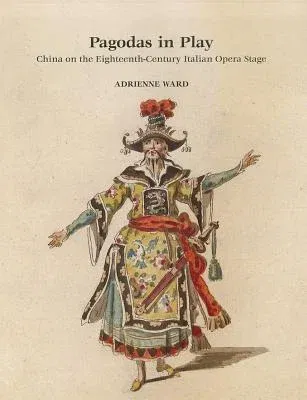Pagodas in Play examines the representation of China in nine Italian
operas of the eighteenth century. It focuses specifically on libretti,
analyzing them as texts produced in a variety of interpenetrating
cultural contexts: the general European fascination with the Middle
Kingdom; developments in Italian literary, theatrical, and operatic
realms; Enlightenment ideologies; and the heterogeneity of the Italian
states. With exemplary scholarship Adrienne Ward explores how Italians
appropriated prevailing notions about the Celestial Empire and used them
productively in a form of entertainment widely comprehensible in
eighteenth-century Europe. The Chinese characters, places, objects, and
ideas staged in Italian heroic operas (opera serie) and comic operas
(opera buffe) provide a rich picture of how such authors as Pietro
Metastasio, Apostolo Zeno, Carlo Goldoni, Giambattista Lorenzi, and
Domenico Lalli conceived of the Celestial Empire. Furthermore, the texts
and performance practices tell a detailed story about China's versatile
role in how Italians addressed local and transnational developments.
Ward demonstrates how the fertile exploitation of perceptions of China
in Settecento Italian opera challenges the idea that only in the
twentieth century has Orientalism shifted from a geographical paradigm
to one in which essentialist characteristics are deterritorialized and
manipulated in the interests of competing new world elites. Indeed,
discrete conceptualizations of Chineseness were mobilized for local
purposes, far removed from questions of actual East vs. West, and from
nationalist and/or colonialist projects. Pagodas in Play will appeal to
students and scholars of the Enlightenment, Orientalism, Italian
Studies, and Opera Studies, as well as to historians of European
sinology, who will be afforded a fascinating view onto a stage until now
unrevealed.

